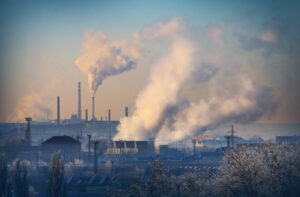September 14, 2022 | Black & Kletz Allergy

Below are a few ways that climate change may impact allergies:
- The warming of the climate and higher carbon dioxide levels will likely lead to longer pollen seasons.
- More hot summer days will generate more ozone which will probably trigger more flare-ups of breathing difficulties for people with chronic respiratory conditions such as asthma.
- Rising sea levels and changes in rainfall patterns are likely to increase the incidence and severity of mold allergies.
- The warming conditions caused by global warming may lead to the increased prevalence of biting and stinging insects in new areas.
- The effect of fewer cold winter days on respiratory infections from viruses and bacteria is still unpredictable.
We know that having more energy efficient and tighter homes leads to an increase in indoor air pollution. The accumulation of volatile organic compounds (VOC’s), radon gas, smoke particulates, and allergenic proteins will increase the risk of respiratory illnesses. In addition, higher water vapor and moisture levels will increase dust mite and mold growth, leading to an increase in the number of allergy sufferers as well as the severity of allergy symptoms.
“Green” practices such as composting facilities may cause an increase in respiratory diseases through the increased fungal load put into the air by these facilities. Burning wood produces harmful chemicals including carbon dioxide, carbon monoxide, unburned hydrocarbons, and formaldehyde. Inhaling particles coated with these chemicals contribute to bronchitis, asthma, and emphysema.
With an increase in temperatures and other features of climate change, ragweed will flower earlier in the season and produce more pollen in urban locations where carbon dioxide concentrations and temperatures are higher. The same effect can be seen on other allergenic species including poison ivy.
Whatever the coming changes may bring, a few proven environmental control measures should be noted as a means to help prevent allergy symptoms. Keeping the indoor humidity lower in order to limit dust mite and mold growth is a good thing to do particularly if one is allergic to dust and/or molds. It is also important to use a HEPA filter in one’s house and to change them regularly. Minimizing outdoor activities on high pollen days can also diminish allergic symptoms and reduce the need for allergy medications. One can also take a shower after spending time outdoors so that the pollen is washed off one’s body. Another environmental control measure that helps allergy sufferers is to wash off one’s pet after they spend time outdoors since pet hair attracts pollen.
The allergy doctors at Black & Kletz Allergy are board certified and treat both adult and pediatric patients. We have 3 convenient locations in the Washington, DC, Northern Virginia, and Maryland metropolitan area. We have offices in Washington, DC, McLean, VA (Tysons Corner, VA), and Manassas, VA which all offer on-site parking. The Washington, DC and McLean, VA locations are Metro accessible and there is a free shuttle that runs between the McLean, VA office and the Spring Hill metro station on the silver line. Please call us to make an appointment or you can click Request an Appointment and we will reply within 24 hours by the next business day. The allergy doctors at Black & Kletz Allergy are eager to help you with any of your allergy or immunology needs. We diagnose and treat a multitude of allergy and immunological conditions including allergic rhinitis (i.e., hay fever), asthma, sinus problems, hives (i.e., urticaria), swelling episodes (i.e., angioedema), generalized itching (i.e., pruritus), food allergies, medication allergies, eczema (i.e., atopic dermatitis), insect sting allergies, poison ivy, poison oak, poison sumac, contact dermatitis, eosinophilic esophagitis, mast cell diseases, and immune disorders. The allergists at Black & Kletz Allergy are knowledgeable about how climate change may affect allergy symptoms and are here to help guide you through these changes. We are dedicated to providing excellent care to you as we have been doing in the Washington, DC metropolitan area for more than 5 decades.












